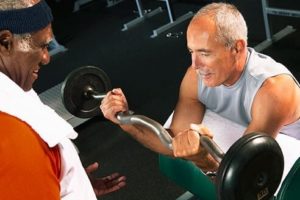journal of applied physiology
Beetroot juice could help people live more active lives
New research into the health benefits of beetroot juice suggests it’s not only athletes who can benefit from its performance enhancing properties — its physiological effects could help the elderly or people with heart or lung-conditions enjoy more…
Heat acclimation benefits athletic performance
Turning up the heat might be the best thing for athletes competing in cool weather, according to a new study by human physiology researchers at the University of Oregon.
Published in the October issue of the Journal of Applied Physiology, the pape…
WSU researchers discover key mechanism behind sleep
SPOKANE, Wash. — Washington State University researchers have discovered the mechanism by which the brain switches from a wakeful to a sleeping state. The finding clears the way for a suite of discoveries, from sleeping aids to treatments for …
Energy drinks may give young sports teams an edge, study says
Consuming energy drinks during team sports could help young people perform better, a study suggests.
Sports scientists found that 12-14 year olds can play for longer in team games when they drink an isotonic sports drink before and during games.
…
Supplement produces a ‘striking’ endurance boost
Research from the University of Exeter has revealed taking a dietary supplement to boost nitric oxide in the body can significantly boost stamina during high-intensity exercise.
The study has important implications for athletes, as results sugge…
High Price For Late-Night Computer Use
Recently released research claims that playing lots of video games improves some types of visual functioning. Before rushing to your computer or buying more games, consider another new research finding. Newly published results suggests that performing an exciting video display terminal task fitted with a bright display suppresses the nocturnal changes in melatonin concentration and other elements of our biological clocks. In other words, playing an exciting video game at night with a bright display backlight might just be the physiological cause of a poor night’s sleep.
Popular sports supplement has no effect on endurance
An amino acid supplement called L-tyrosine, recommended by fitness trainers and sold by supplement outlets as an endurance booster, has no effect on endurance, according to a new Brigham Young University study. “There wasn’t any indication from our tests that tyrosine had an effect in the blood or in the brain,” said Allen Parcell, assistant professor in the Human Performance Research Center at BYU. “Tyrosine didn’t improve endurance performance in our subjects.”

